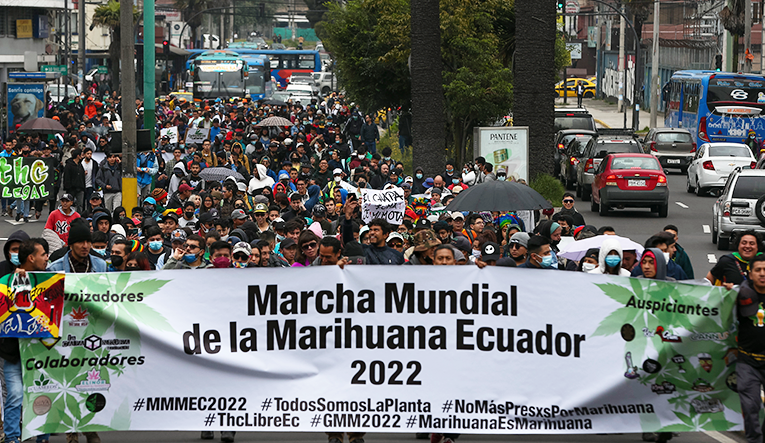These days, there is a debate in countries such as the Netherlands about the decriminalization of drugs as a way to eliminate criminal organizations that destabilize entire countries due to their violence. It is recognized that this policy alone cannot solve the effects of the international drug trafficking business even in the richest countries of the world. In countries such as Ecuador, with high rates of economic inequality, social injustice, and corruption, even more problems would be unleashed.
First, decriminalizing drugs selectively, as Uruguay did with cannabis, has not exempted the country from violence caused by drug trafficking. Theoretically, all drugs would have to be decriminalized, which would lead to serious public health problems, as shown by the rates of addiction and death from fentanyl in the United States. And, even if Ecuador wanted to meet this challenge, its public health system has more pressing concerns and is chronically underfunded.
Second, even if all drugs were decriminalized, criminal networks would not be interested only in them; they could diversify their illegal activities to continue operating. Under the logic of controlling money flows, every activity susceptible to control in the country would have to be freed, starting with cigarettes and gasoline, subject to lucrative smuggling networks, and ending with uncontrolled mining. And this is not possible.
Third, although it is commonplace in the debates, there is no simple answer to the levels of violence that consumer, producer, and distributor countries have reached. Ecuador first needs to address the root causes of inequality, systematic social and labor discrimination, widespread crime in the different branches of government, and weak legal institutions. In the country, even legal drugs, and medicines, are goods prized by the mafias entrenched in the state.
The mayor of Amsterdam, Femke Halsema, recently expressed her concern that the Netherlands could become a narco-state and that violence could destabilize the country. To prevent, as is happening, young people as young as 14 years of age from becoming involved in the illegal trade, she proposes alternatives that include the legalization of certain drugs, following the example of Uruguay. This option, however, is feasible in countries with a strong regulatory, fiscal, and legal system with greater capacity to control money flows and undue influence.
In Ecuador, drug decriminalization requires changes for which it is not ready. In the country, assassinations of elected dignitaries and public persons can be committed with a high degree of impunity. The most recent murder of prosecutor César Suárez Pilay on January 17 showed once again that any criminal, from the head of a cartel to a minor mafia, feels free to kill a representative of the justice system in the middle of a public street.
The decriminalization of drugs requires fundamental changes: both guarantees for effective law enforcement and systematic mechanisms for economic and social inclusion. In their absence, any other illicit business can flourish and not even a fraction of the problem will have been solved.
*Translated by Janaína Ruviaro da Silva from the original in Spanish.












